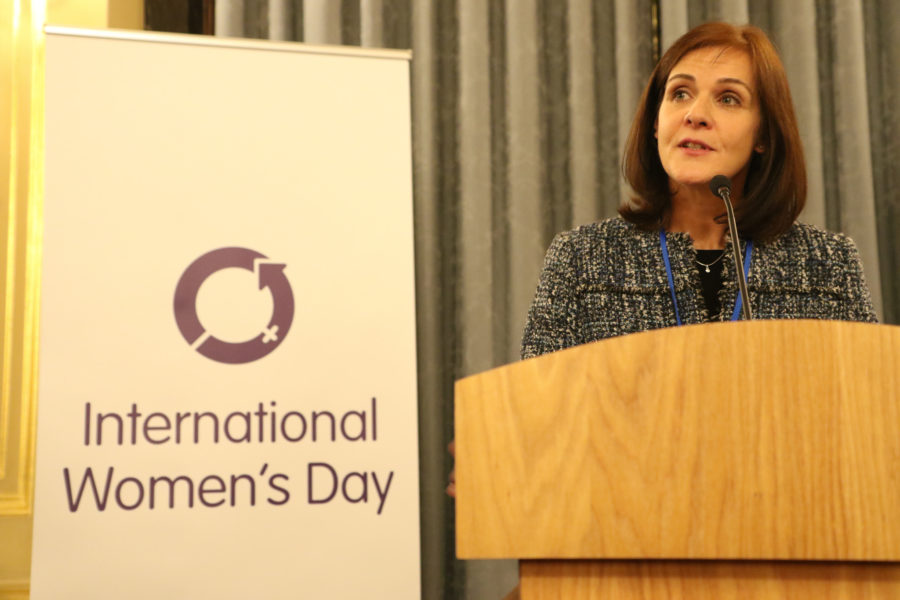We recently celebrated International Women’s Day, a day when we can celebrate the achievements of women in history and around the world. It’s also a day when we look to address the barriers that hold back women.
I was delighted to have been appointed to the new role of Special Envoy for Gender Equality. This is really important work. Gender inequality is still too prevalent around the world. It denies girls access to education, which could otherwise transform lives and communities. Sexual violence and abuse destroys lives; as do female genital mutilation, forced marriage, human trafficking. And too often, women around the world still face a lack of control or choice over their lives, their families, their bodies, their decisions.
Addressing these issues is not only the right thing to do. It makes economic sense too: up to $28 trillion* could be added if women took an equal place in the global economy. And it doesn’t just benefit women. It creates wealth for their families and wider communities. And that in turn brings greater stability and self sufficiency.
And we know that bringing women into peace and reconciliation activity, negotiations and post-conflict resolution efforts, those policies like agreements are stronger, more durable. I am extremely proud of the approach that the UK Government has taken in seeking to improve the lives of women and girls around the world.
For example, our Prime Minister’s commitment to modern day slavery, affecting both men and women, and championing efforts to address violence against women and girls. Work by the Department for International Development supporting millions of girls into primary education, working with African nations to reduce FGM, leading the global drive to eradicate violence against women and girls.
I saw for myself how we play a pivotal role at the annual United Nations meeting on the Status of Women, and were a driving force behind securing international agreement to the gender equality Sustainable Development Goal, and ensured that gender was woven into all of the other SDGs.
Under Justine Greening’s leadership, the U.K. was a founder member of the High Level Panel for Economic Empowerment for Women, recognising that only by enabling and supporting women to fulfil their economic potential can we start to see a real difference in their lives.
In my previous role, I saw for myself how the Forced Marriage Unit – a joint Foreign Office and Home Office team located here in the FCO – works to support women and men facing or having been forced into marriage, and our consular staff make daring rescues of women held against their will.
I have seen how our Missions overseas support efforts to tackle honour killings. I have heard for myself the pain and trauma of survivors of rape and sexual assault, and how the longterm psychological effects and stigma arising from those assaults affects the lives and wellbeing of men and women, boys and girls. Launched by former Foreign Secretary, Lord Hague, led now by Foreign Office Minister Baroness Anelay, our commitment to tackling sexual violence in conflict has not diminished.
This commitment is something to be proud of. But there remains much to do. The world is changing but not fast enough. In the U.K., we still want to see more women in senior roles in public and business sectors. Research shows that when companies appoint more women on their boards, companies become more profitable. And for the first time, legislation will require organisations of over 250 people in the U.K. to publish their pay gap figures with a view to taking action where that gap is unacceptably large.
And that is why we are committing to make a step change in our engagement across Government and on the international stage – the UK leading the way to really make a difference.
I want to support the Prime Minister, Foreign Secretary and other Government Ministers ensuring our foreign policy and programme work has gender equality consciously woven through it.
I want to harness our diplomatic weight to influence internationally, whether through United Nations and other multilateral bodies, or bilaterally with other countries.
And I will work closely with like-minded countries, civil society and other partners to progress this work, demonstrating clearly the UK’s commitment, ambition and leadership in this field to achieve the bold, aspirational changes we want to see. Aspirations truly worthy of a Global Britain.

